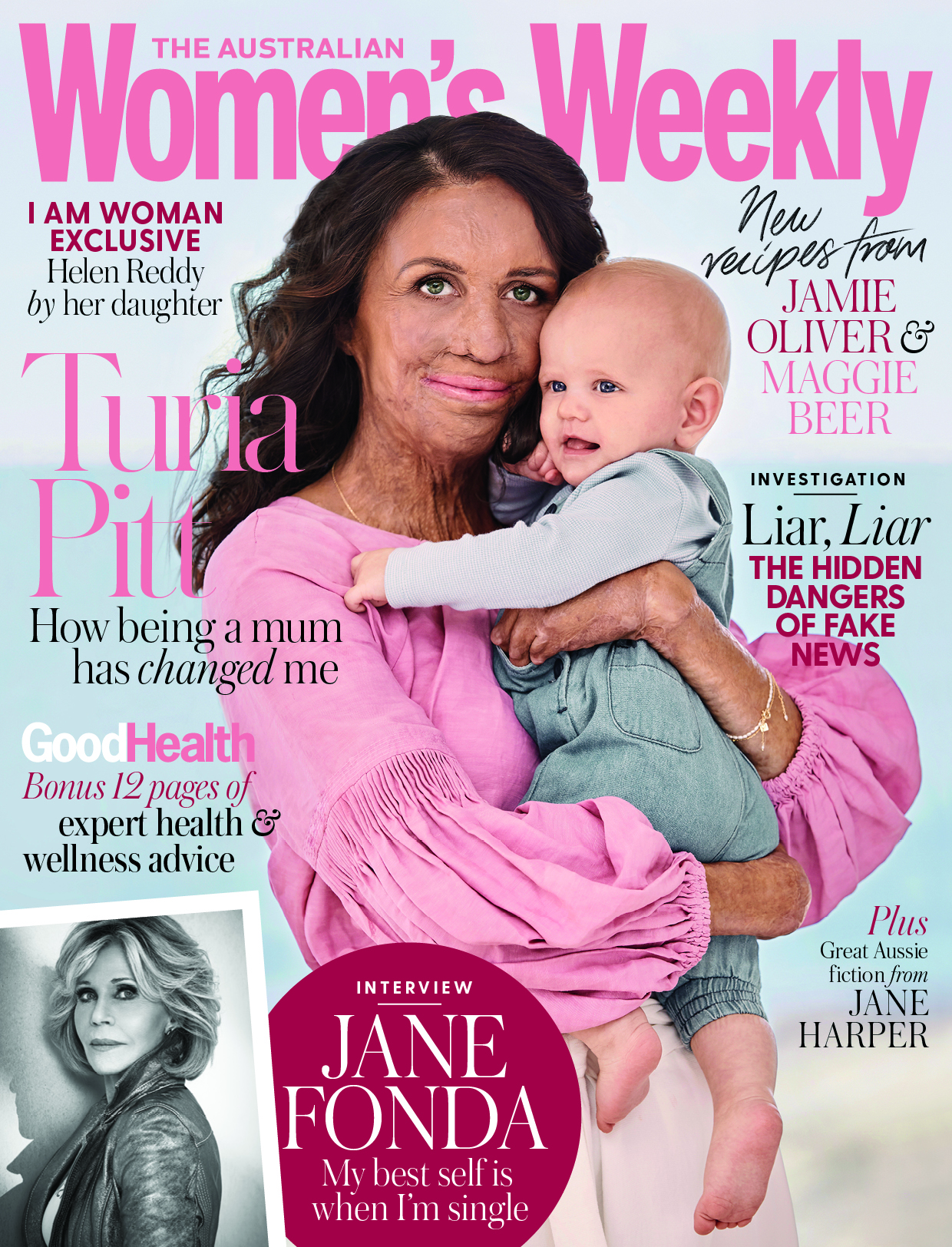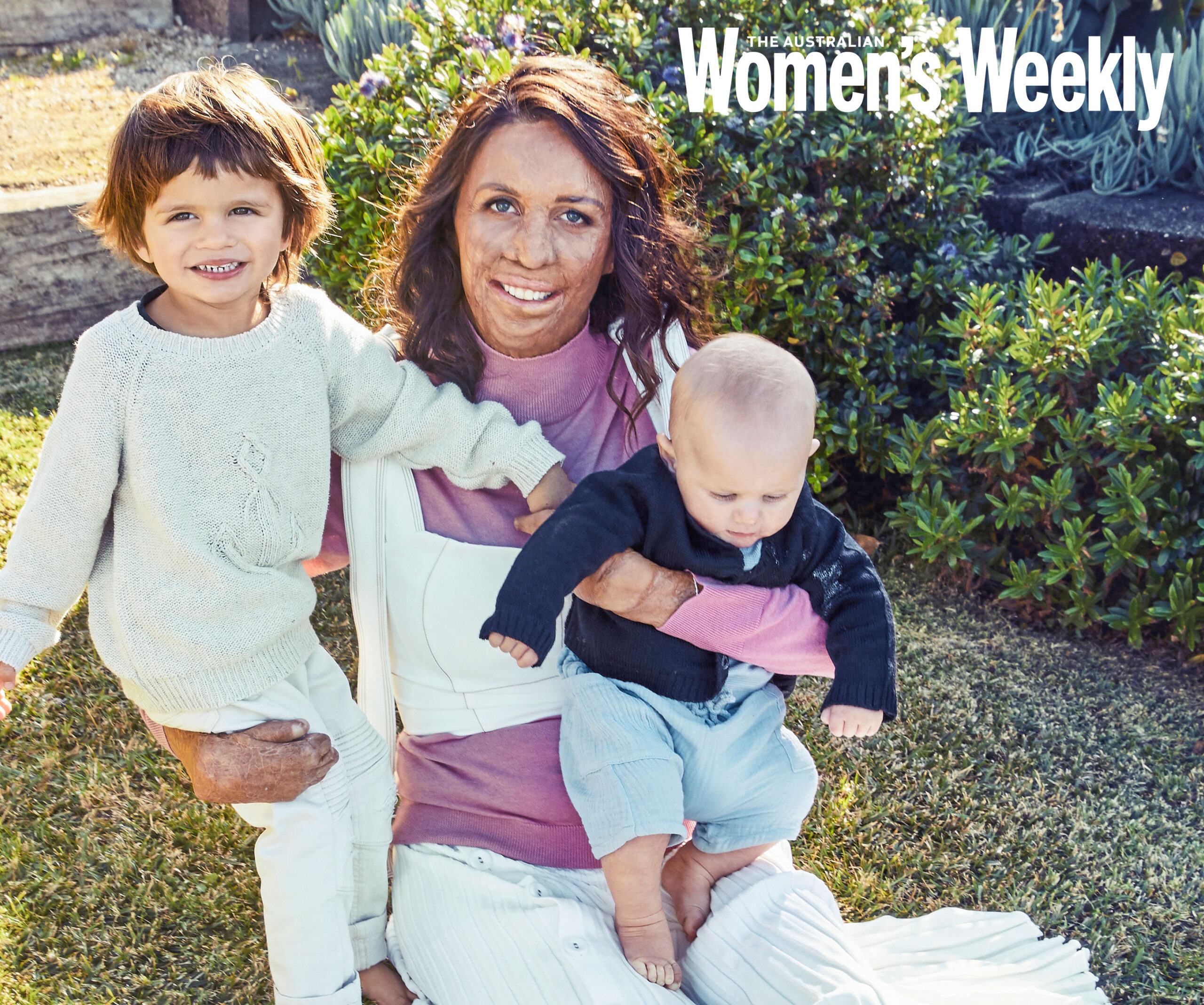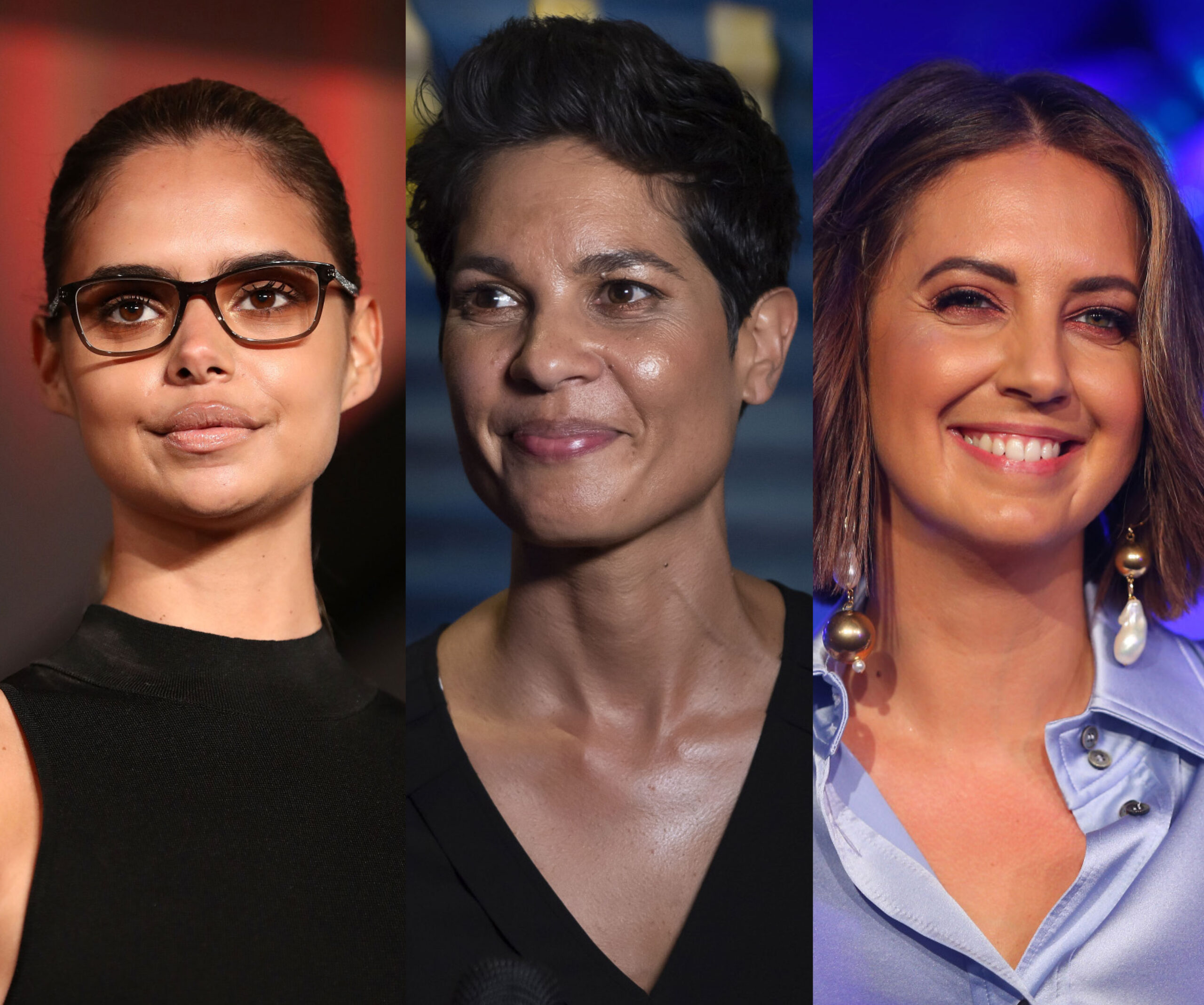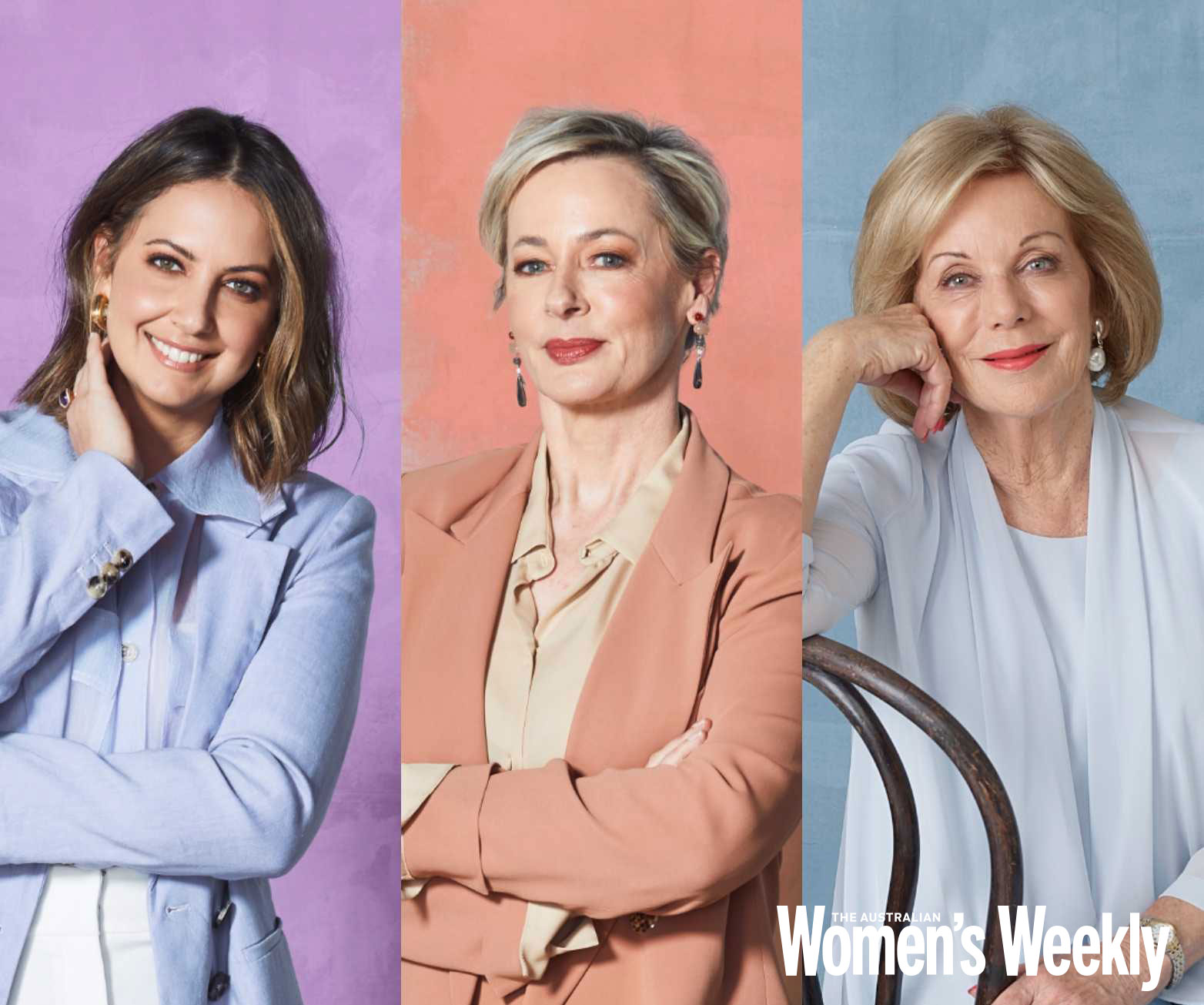It’s a hot September morning in Broome and a pint-sized rodeo rider is kicking up dust in the very same ring that’s about to host a Brazilian heavyweight, Adriano Moraes, one of the great bull riders of the world.
In the shade of a nearby kurrajong tree, local families swap news and plan to meet up at the country music stage later in the day.
A couple of seasoned Indigenous stockmen from a remote community to the north-east approach the event organiser, Cara Peek, shake her hand and express their gratitude. “Thank you for doing this,” they say. “I can’t believe we are doing this!”
Cara is proud that they feel a sense of ownership of the festival.
“It’s probably the first time they’ve seen people who look like them, with a similar lived experience to them, running the show from top to bottom,” she explains. “And that’s a powerful thing.”
Saltwater Country, the not-for-profit organisation behind all this, is also a powerful thing. And its annual Rhythm & Ride Rodeo, Campdraft and Country Music Festival showcases that power.
It’s run by a team of Indigenous people (largely volunteers) who, like Cara, have their hearts and souls planted in the Kimberley, and are passionate about shaping its future.
In a region marked by some of the world’s most spectacular landscapes, a complex, sometimes brutal history and the highest suicide rate on Earth, Saltwater Country aims to inspire and empower local people – especially Indigenous kids at risk – by celebrating the skills and the legacy of Aboriginal stockmen and women.
“They were resilient and strong. The pastoral industry in this country was built on the backs of Indigenous stockmen and women,” Cara says.
“And they often worked for free. For me, it was important to recognise that contribution and also recognise them as a symbol of freedom.”
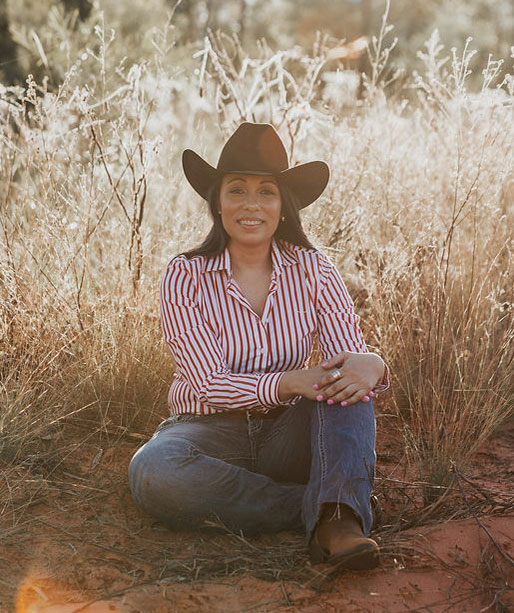
“First Nations people in colonised countries across the globe have very similar shared histories and lived experience well into this modern day. We’re grappling with the same issues,” says Cara.
(Stephanie Coombs.)In an era in which Indigenous people were being killed in the bloody frontier wars or corralled together on missions, the stockmen and women roamed the outback, working their own land for European pastoralists.
And their traditions have survived to the present day. Hearing their stories and mastering their skills fills the young people who come along to rodeos and workshops with pride and a sense of hope – as it did Cara when she first moved back home to the Kimberley 13 years ago.
Cara is a Yawuru/Bunuba woman – her mum and grandmother hail from one of the oldest families in Broome – but she was born and bred in Melbourne.
The eldest of three, Cara was raised in the homestead of what was once a rambling orchard, until the bustling, multicultural south-eastern suburbs emerged.
“That area was a real melting pot of cultures and food and people,” she says, “which was really good for me as a young Indigenous woman in a big city, who also has familial Chinese ties [her Chinese grandfather was one of Broome’s hard-hat pearl divers] and European connections as well. It was a good place for someone like me to grow up.”
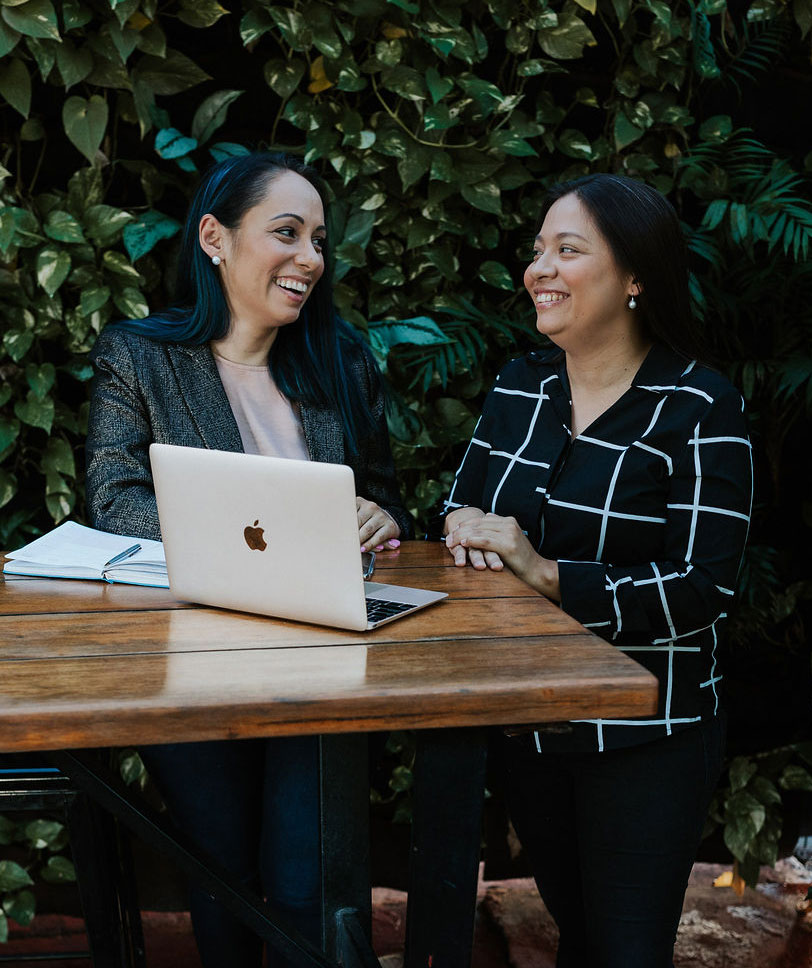
Cara (left) and sister Adele have exciting plans for The Cultural Intelligence Project.
(Photo supplied and used with permission.)Cara’s father was a photographer; her mother a midwife and theatre nurse. She credits her mum as her greatest inspiration.
“She’s one of the strongest people I know,” she insists, “hands down. I’m inspired by her work ethic. She has dedicated her entire life to looking after other people. More broadly, I come from a female-dominated family.”
“My mum is the eldest of nine children, in which there is only one boy, and my grandmother is one of 13. The strength and resilience of the women in my family, and Indigenous women more broadly, has been a big influence on me. If people need support, it’s those women who drive it, and I garner strength from that.”
Cara was born with plenty of that spirit, too – a mix of confidence, resilience and a finely honed sense of justice.
“Mum says that, from the day I was born, I knew exactly who I was and what I was supposed to do,” she chuckles.
WATCH BELOW: Today‘s Brooke Boney on the advice she’d give to her younger self. Article continues below.
With a can-do attitude, Cara learnt to bake a cake, read a book and tune a car – all before she started school.
“I was very energetic,” she says. “I loved dancing and reading and learning. I was fairly sensible – I could be left to my own devices. But I was also argumentative and strong-willed.”
“From a very early age, I had enough confidence to not only stand up for myself, but stand up for other people. I wanted to make life a bit fairer, and I think my work has grown from there.”
Cara graduated university with a double degree in psychology and law, and went on to work and study in British Columbia and the US. She worked for a time in the Northwest Territories. “I’ve never been so cold in my life, but I got to see the Northern Lights,” she grins.
Next, she found a job with Rio Tinto, working with the San Carlos Apache nation on legal aid and scholarship programs. It was a time of massive learning.
“But coming back permanently has meant so much to me. Connecting with my grandmother … that was a large part of the reason I came back.”
“Being able to learn and laugh with her more as she’s getting older is amazing. One of my favourite things is to sit quietly with her. One of the beauties of spending time with Indigenous people is their comfort in the silence.”
“We don’t need to fill the space. So, quality time, and listening to stories when people are willing to tell them. I’ve learnt more about my grandmother’s history and about the great love that my grandfather had for her.”
“There were difficult times for her, as an Aboriginal woman married to a Chinese man in a White Australia Policy environment. My grandfather was thrown in the lock-up a couple of times for trying to get his kids educated.”
“But they did the work to ensure their kids were safe and educated, and were given as much as they could, and we are now seeing the fruits of that.”

“The pastoral industry in this country was built on the backs of Indigenous stockmen and women,” Cara says. “And they often worked for free. For me, it was important to recognise that contribution and also recognise them as a symbol of freedom.”
(Getty.)Arriving in Broome, Cara quickly saw what Indigenous youths were up against: “Overcrowded housing, poor health, culturally irrelevant education that doesn’t take into account that they can often speak five languages before they speak English.”
“Being in a perpetual state of grief, due to intergenerational trauma and suicide, is exhausting. And often there’s a lack of food security. These things should not be happening in this country.”
There were more subtle struggles, too – some of which Cara recognised as she’d been through them herself. “The biggest challenge as a young Indigenous woman – and it continues to this day – is that people tend to put you in a box,” she explains.
So Saltwater Country is about providing training, inspiration and hope. But it’s also about “challenging the narratives and the preconceived ideas of society as to who or what we should be”.
Cara’s sister, Adele, lives in Broome and was a founding board member of Saltwater Country and another Peek sisters’ start-up, The Cultural Intelligence Project.
The pair hope to expand the training they offer to encompass project management, marketing, film, photography and hospitality, as well as those skills of the stockmen and women.

“From a very early age, I had enough confidence to not only stand up for myself, but stand up for other people,” says Cara. “I wanted to make life a bit fairer, and I think my work has grown from there.”
(Stephanie Coombs.)Their young protégés can learn on the job in Broome. “And these are all transferable skills,” Cara says.
“They can take them anywhere.” Cara, who turned 40 this year, is the WA winner of the 2020 AgriFutures Rural Women’s Award, and she hopes that will raise the profile of her organisation, as well as funds. Ultimately, she’d like to roll out her programs across the nation.”
“Less than one per cent of philanthropic donations go to First Nations people and their organisations,” she says.
“We’re looking to change that. If you want to help Indigenous people, donate to Indigenous-controlled organisations. It’s empowering and it creates employment every step of the way.”
WATCH BELOW: Linda Burney’s historic speech as the first female Indigenous Member of Parliament. Interview continues below.
Moving back to Broome changed Cara’s life. “The thing that resonates with me most up here is the absolute sense of freedom that I’ve never found anywhere else. On Yawuru country and Bunuba country, I feel instantly at home and free,” she says.
And now she wants to share that mix of freedom and opportunity with the young people she meets every day. “The reason I do this work is for the benefit of our people,” Cara says, “and for the next generation.”
“I don’t want to be there the day my three-year-old niece, my bibi [Yawuru for daughter], realises why her life is different in this country. I want her to be treated the same as everybody else, to have the same opportunities. And the way this nation is at the moment, I can’t say that’s going to happen.”
“I truly believe that the success of the First Australians is the success of all Australians, and I just hope we can come together in that endeavour.”
Read more stories like Cara’s in the October issue of The Australian Women’s Weekly, on sale now.
